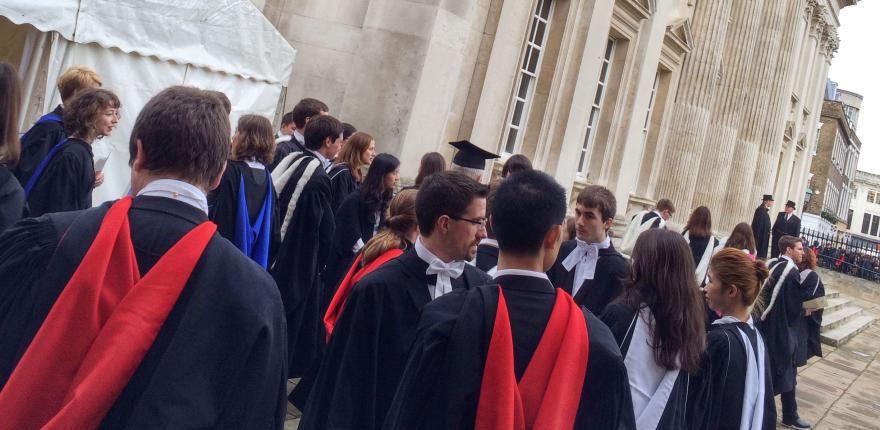Contact the Postgraduate Admissions Administrator - for subject specific admissions enquiries
Contact the Teaching Administrator - for more information on courses and course structure

Department of Archaeology

Our exciting Masters’ (MPhil) Programmes will allow you to gain research experience in one of the most dynamic research environments in the world. The Archaeology programme at Cambridge has been ranked number one overall in the UK for the fifth year in a row by the independent Complete University Guide. We have also been awarded the top Archaeology course for the third consecutive year by QS World University Rankings by Subject.
A wide range of specialised taught Masters’ programmes cover archaeological science, biological anthropology, ancient languages and heritage studies. We also have a more general Master’s programme in Archaeology which allows you to focus on fields as diverse as African Archaeology, European Prehistory, South Asian Archaeology, the Archaeology of the Americas, Palaeolithic Archaeology and the Global Middle Ages. This programme offers you the flexibility to combine your interests in a particular period or region with an in-depth study of methods such as zooarchaeology, palaeobotany, materials analysis and many others.
The Masters’ programmes in Archaeological Research and Biological Anthropological Science are suitable for students who have already achieved a high degree of specialist knowledge and have specific research interests. You spend the year working on a research paper and an extended dissertation.
The Masters’ programmes run from the beginning of October to the end of July. After two or three terms of teaching (three in ancient languages) you will spend the spring and summer months researching for your dissertation.
The following MPhil programmes and options tracks are available in most years. Be aware that some academic staff may be on sabbatical during the year you plan to study with us. Please check with the Teaching administrator if you are looking to work with particular staff members in the department.
Prospective applicants wishing to follow a particular track should contact the Postgraduate Admissions Administrator to check on course availability for the year they are applying for.
We offer research-led teaching at the highest level. That means that the content of our courses is at the cutting-edge of ongoing research. MPhil students in the Department will have a primary supervisor with expertise in their chosen geographic region, time period, and/or approach. Staff and students interact closely in lectures, seminars, language classes and laboratory-based practicals, allowing students to benefit from the world-class research being carried out at the Department. The means of assessment vary from module to module, and can be by coursework, exams, and presentations.
Our excellent staff-student ratio means that students have regular contact with staff in small class sizes. Students have a high degree of intellectual freedom. You design your own research questions, together with your personal supervisor, and are given space to immerse yourself in your chosen specialisation. There are also many opportunities for you to join Department-based research projects.
As an MPhil student, you will work closely with and alongside teaching staff, postdoctoral researchers and postgraduate students. Our postgraduate community is vibrant. The McDonald Institute for Archaeological Research and Cambridge Heritage Research Centre hosts a wide range of research seminars and discussion groups, and facilitates interaction within a diverse post-graduate and post-doctoral research environment. Postgraduate students publish their own peer-reviewed academic journal—the Archaeological Review from Cambridge. The Department also offers many opportunities for fieldwork and field trips and we encourage students to participate in community outreach activities. We are a friendly Department with students and staff members from all over the world.
We have world-class resources for supporting MPhil teaching and research. Our excellent facilities include the Cambridge Archaeological Unit, a well-equipped IT suite and purpose-built laboratories for Geoarchaeology, Bioarchaeology, Archaeogenetics, Zooarchaeology, Isotopic Analysis and Material Culture. The Duckworth Collection holds one of the largest human skeletal collections in the world, while the Museum of Archaeology and Anthropology and the Fitzwilliam Museum provide access to extensive artefact collections of global importance. The Haddon Library is conveniently located within the main Archaeology Department building and houses a wide range of specialist archaeological and anthropological literature and journals.